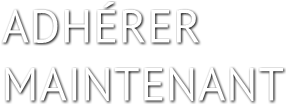Language switcher: In Advanced tab, HTML_ID on this gadget is set to language_switch |
|
|
SCAS will play a vital role in Canada’s diverse La SCSA joue un rôle essentiel dans la communauté diversifiée |
1. Promoting holistic and impactful research for the advancement of aquatic sciences in Canada; 2. Creating awareness of aquatic ecosystems and their science-based management and conservation 3. Supporting the engagement and contributions of students and early-career researchers to advancing 4. Facilitating communication and networking among members of the Society in all sectors by coordinating 5. Fostering a welcoming environment and strengthen the aquatic sciences community through greater 6. Enabling and strengthening equitable relationships with rights holders and stakeholders that respect 1. Promouvoir une recherche holistique et pertinente pour l'avancement des sciences aquatiques au Canada ; 2. De faire connaître les écosystèmes aquatiques, leur gestion scientifique et leur conservation au Canada ; 3. Soutenir l'engagement et les contributions des étudiants et des chercheurs en début de carrière pour l'avancement des sciences aquatiques ; 4. Faciliter la communication et le réseautage entre les membres de la société dans tous les secteurs en coordonnant au moins une conférence nationale inclusive chaque année ; 5. Favoriser un environnement accueillant et renforcer la communauté des sciences aquatiques par une plus grande équité, diversité et inclusion et travailler à l'élimination des barrières systémiques et à l'atténuation des préjugés qui entravent l'avancement de la carrière et l'intégration dans la communauté des sciences aquatiques du Canada ; 6. Permettre et renforcer les relations équitables avec les titulaires de droits et les parties prenantes qui respectent et valorisent les différentes façons de savoir, de faire, et d'être. |
The SCAS was formed through a merger of its two founding organizations: The Canadian Conference for Fisheries Research (CCFFR) was formed to take over some of the functions of the National Committee on Fish Culture. This latter was a joint committee of the National Research Council and the Biological Board of Canada (renamed the Fisheries Research Board of Canada in 1938). CCFFR held its first meeting in January of 1948. It has existed solely as an annual meeting and it incorporated in 2009. La SCSA est née de la fusion de ses deux organisations fondatrices: La conférence canadienne de la recherche sur les pêcheries (CCRP) a été créé pour reprendre certaines des fonctions du comité national de la pisciculture. Ce dernier était un comité conjoint du conseil national de recherches et du conseil biologique du Canada (rebaptisé conseil de recherches sur les pêcheries du Canada en 1938). Le CCRP a tenu sa première réunion en janvier 1948. Elle n'a existé que sous la forme d'une réunion annuelle et a été incorporée en 2009. Click for a more complete history of CCFFRInitially CCFFR was the Canadian Conference for Fisheries Research and was formed to take over some of the functions of the National committee on Fish Culture which was a joint committee of the National Research Council and the Biological Board of Canada (renamed the Fisheries Research Board of Canada in 1938). The first meeting of the CCFFR, sponsored by NRC, was held in Ottawa on January 6, 1948, and its terms of reference stated that the CCFFR "act as a clearing house for information and as a forum for discussion of common problems, to promote the coordination of research and technique, to consider what researches ought to be undertaken and to recommend accordingly, to give advice on the granting of funds for specific researches when such advice is requested and to advise on the dissemination of information". Initially it was a forum where research proposed by government scientists was reviewed by Canada’s academic community. CCFFR evolved from a committee into an organization that was wholly dependent on government financing to a self financed organization whose sole purpose was to convene one conference a year on a cycle of East-Centre-West-Centre. CCFFR was incorporated in 2009 to protect local arrangements Chairs from personal liability and the founding CCFFR Board was specific in deciding that the organization existed to convene the conference and it had no policies or procedures and took no positions on behalf of its members. Cliquez pour un historique plus complet de la CCRP.À l'origine, le CCRP était le conférence canadien de la recherche sur les pêches et a été formé pour assumer certaines des fonctions du comité national sur la pisciculture, qui était un comité mixte du conseil national de recherches et de l'office de biologie du Canada (rebaptisé l'office de recherche sur les pêches de Canada en 1938). La première réunion du CCRP, parrainée par le CNRC, a eu lieu à Ottawa le 6 janvier 1948, et son mandat stipulait que le CCRP « agissait comme centre d'échange d'information et comme forum de discussion sur les problèmes communs, pour promouvoir la coordination de la recherche et de la technique, d'examiner quelles recherches doivent être entreprises et de faire des recommandations en conséquence, de donner des conseils sur l'octroi de fonds pour des recherches spécifiques lorsque de tels conseils sont demandés et de donner des conseils sur la diffusion de l'information ». Au départ, il s'agissait d'un forum où les recherches proposées par les scientifiques du gouvernement étaient examinées par la communauté universitaire du Canada. Le CCRP est passé d'un comité à une organisation entièrement dépendante du financement gouvernemental à une organisation autofinancée dont le seul but était de convoquer une conférence par an sur un cycle Est-Centre-Ouest-Centre. Le CCRP a été constitué en 2009 pour protéger les présidents des arrangements locaux de toute responsabilité personnelle et le conseil fondateur du CCFFR a été précis en décidant que l'organisation existait pour convoquer la conférence et qu'elle n'avait pas de politiques ou de procédures et n'a pris aucune position au nom de ses membres. The Society of Canadian Limnologists (SCL) was the Canadian Chapter of the Societas Internationalis Limnologiae (SIL), the International Association of Theoretical and Applied Limnology, and was formed after the 1975 meeting of SIL held at the Freshwater Institute in Winnipeg. The role of SCL was to offer a Canadian forum to discuss limnological research and issues, to promote aquatic research in Canada, and to support the integration of young Canadian limnologists in the research community. La société des limnologues canadiens (SLC) était le chapitre canadien de la societas internationalis limnologiae (SIL), l'association internationale de limnologie théorique et appliquée et a été formée après la réunion de 1975 de la SIL tenue à l'institut des eaux douces à Winnipeg. Le rôle de SLC était d'offrir un forum canadien pour discuter de la recherche et des questions limnologiques, de promouvoir la recherche aquatique au Canada et de soutenir l'intégration des jeunes limnologues canadiens dans la communauté de recherche. Click for a more complete history of SCLThe Society of Canadian Limnologists (SCL) came to life during the 1975 meeting of SIL at the Freshwater Institute in Winnipeg, responding to a broadly held perception that Canada’s freshwater scientists must find better ways to communicate with one another and speak with a common voice. The earliest presidents of SCL included Marcel Ouellet (1979–1981), and Michael Dickman (1981–1984) at Brock University. SCL initially evolved from SIL-Canada which existed under the directorship of Fred Ward at the University of Manitoba and Diane Malley at the Freshwater Institute. SCL first participated in a joint national conference in partnership with the Canadian Conference for Fisheries Research in 1979, and has participated in annual meetings with CCFFR every year since then. In 2014, the SCL held a joint meeting for the Genomes to Biome conference, co-organized with the Canadian Society of Ecology and Evolution (CSEE) and the Canadian Society of Zoologists (CSZ). SCL began recognizing lifetime achievement in Limnology with its Rigler Award starting in 1985, and student achievement started being recognized with the Peters Award starting in 2007. In 2018, the SCL was federally incorporated as a not-for-profit organization and several members of its first Board of Directors played an active role in the creation of SCAS. Cliquez pour un historique plus complet du SLCLa société canadienne des limnologues (SCL) a vu le jour lors de la réunion de 1975 de la SIL à l'institut des eaux douces de Winnipeg, répondant à une perception largement répandue selon laquelle les scientifiques canadiens des eaux douces doivent trouver de meilleures façons de communiquer entre eux et de parler d'une voix commune. Les premiers présidents de SCL comprenaient Marcel Ouellet (1979-1981) et Michael Dickman (1981-1984) à l'Université Brock. SCL a d'abord évolué à partir de SIL-Canada qui existait sous la direction de Fred Ward à l'Université du Manitoba et de Diane Malley à l'Institut des eaux douces. SCL a participé pour la première fois à une conférence nationale conjointe en partenariat avec la Conférence canadienne pour la recherche halieutique en 1979, et a participé à des réunions annuelles avec le CCFFR chaque année depuis lors. En 2014, la SCL a tenu une réunion conjointe pour la conférence Genomes to Biome, co-organisée avec la société canadienne d'écologie et d'évolution (SCEE) et la société canadienne de zoologie (SCZ). La SCL a commencé à reconnaître les réalisations de toute une vie en limnologie avec son prix Rigler à partir de 1985, et la réussite des étudiants a commencé à être reconnue avec le prix Peters à partir de 2007. En 2018, la SCL a été constituée au niveau fédéral en tant qu'organisation à but non lucratif et plusieurs membres de son premier conseil d'administration a joué un rôle actif dans la création de SCSA. Joint meetings of CCFFR and SCL have been held since January of 1979. Meeting registration and sessions were fully integrated in 2014, and informal discussions about a combined organization began in 2015. In 2019, formal motions were passed at CCFFR and SCL business meetings to strike a merger committee to develop a path forward. Society of Canadian Aquatic Sciences (SCAS) The name “Society of Canadian Aquatic Sciences (SCAS)” was selected through a survey of both CCFFR and SCL members, and was formally adopted at the 2021 joint meeting. The same survey garnered input on the mission, purposes, and terms of reference. Subsequently, SCAS was incorporated and an inaugural board was formed to continue advancing the society development. A logo was commissioned and revealed at the 2022 CCFFR/SCL conference where SCAS was formerly introduced to conference attendees and had its kickoff meeting. Seven committees have been formed, and a new board was appointed to continue the society development. Les réunions conjointes du CCRP et du SLC ont lieu depuis janvier 1979. L'inscription aux réunions et les sessions ont été entièrement intégrées en 2014, et des discussions informelles sur une association combinée ont commencé en 2015. En 2019, des motions formelles ont été adoptées lors des réunions d'affaires de la CCRP et de la SLC afin de créer un comité de fusion chargée d'élaborer une voie à suivre.
Société canadienne des sciences aquatiques (SCSA) Le nom "société canadienne des sciences aquatiques (SCSA)" a été choisi de la suite d'un sondage auprès des membres du CCRHP et de la SLC, et a été officiellement adopté lors de la réunion conjointe de 2021. Le même sondage a permis de recueillir des commentaires sur la mission, les objectifs, et le mandat de la SCSA. Par la suite, la SCSA a été constituée et un conseil d'administration inaugural a été formé pour continuer à faire avancer le développement de la société. Un logo a été commandé et révélé lors de la conférence CCRP/SLC de 2022, au cours de laquelle la SCSA a été présentée aux participants à la conférence et a tenu sa réunion de lancement. Sept comités ont été formés, et un nouveau conseil d'administration a été nommé pour poursuivre le développement de la société. 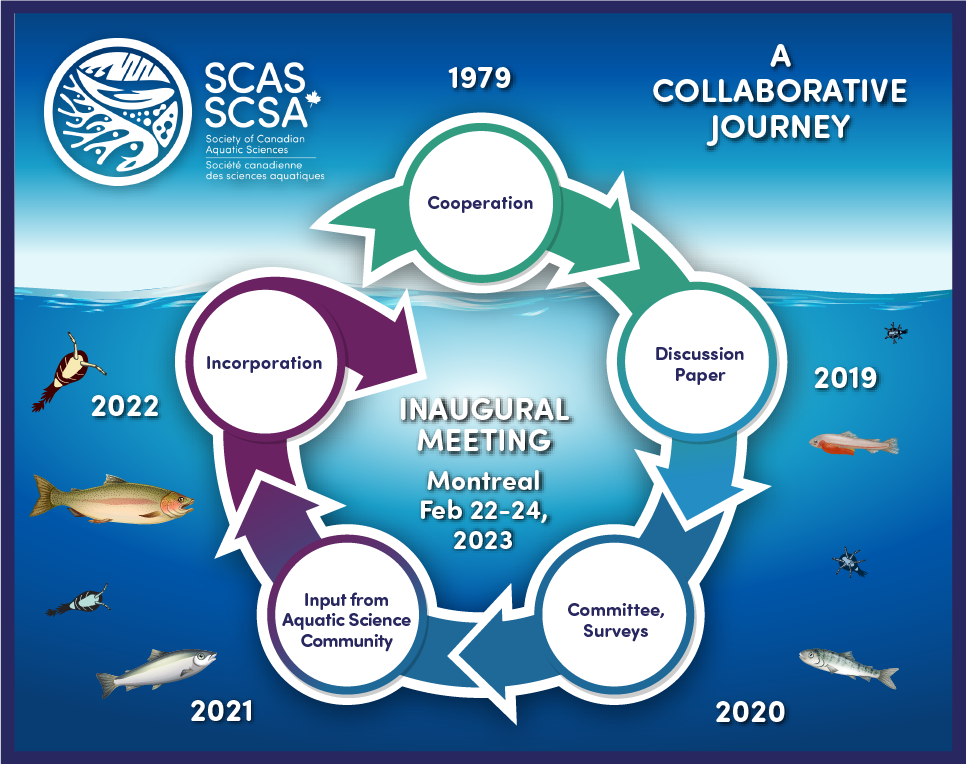 |
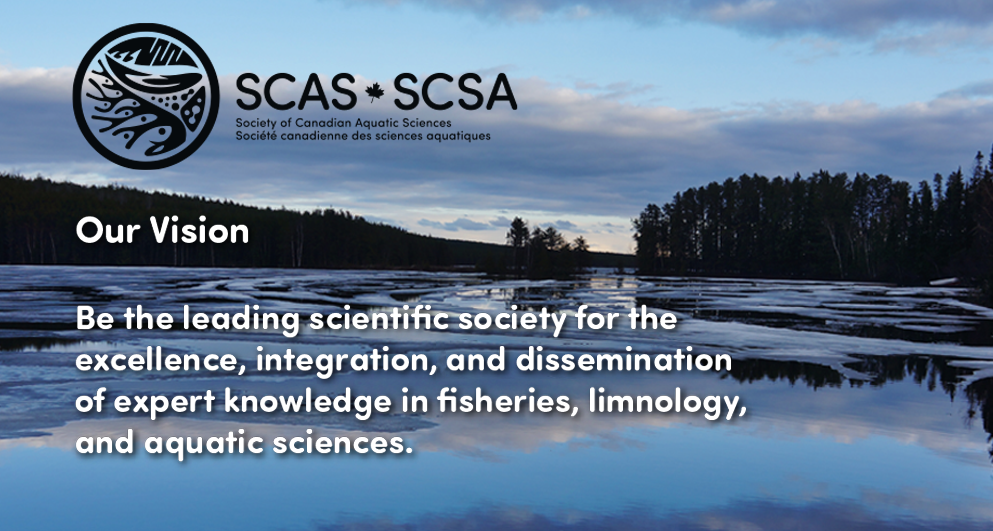
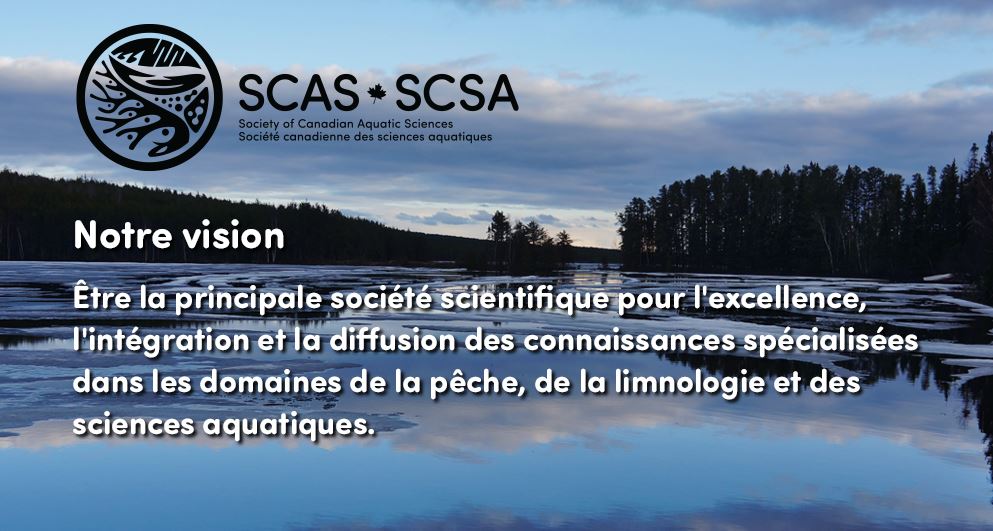
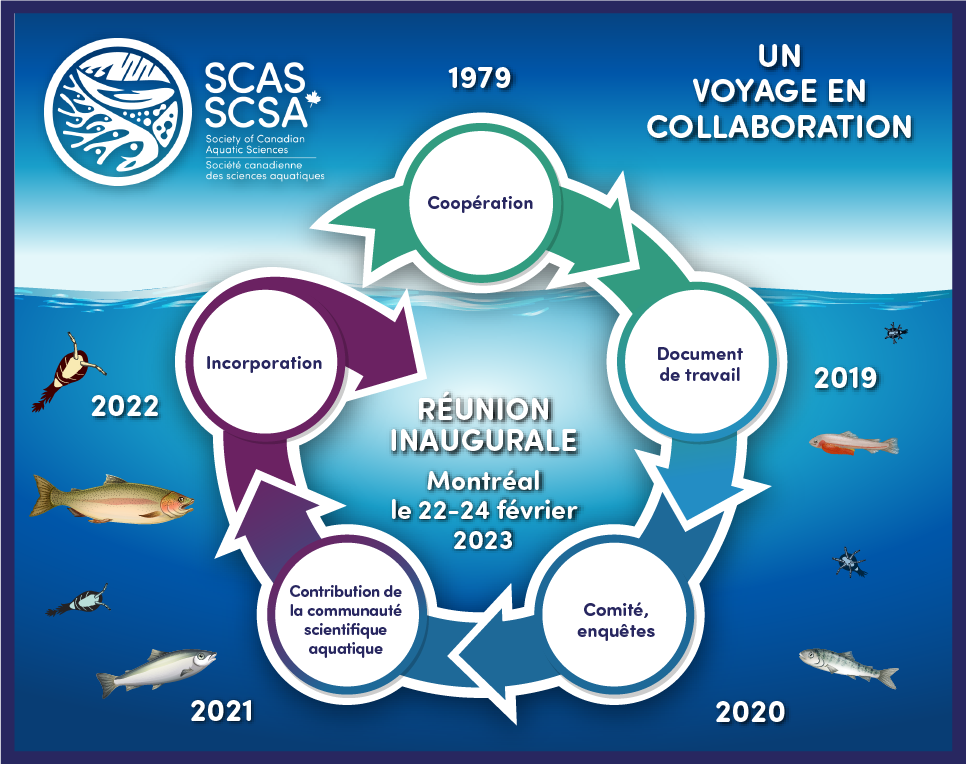


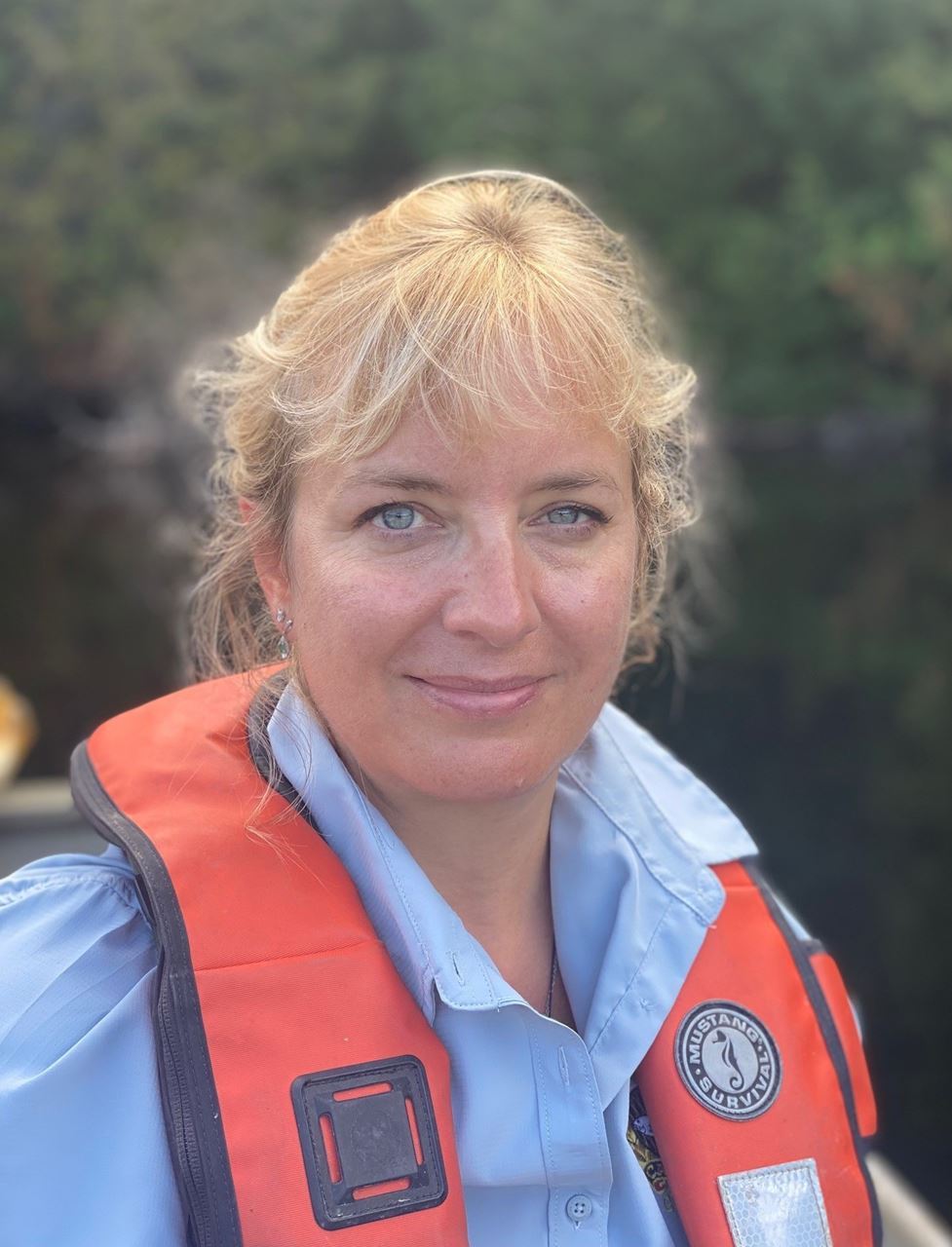


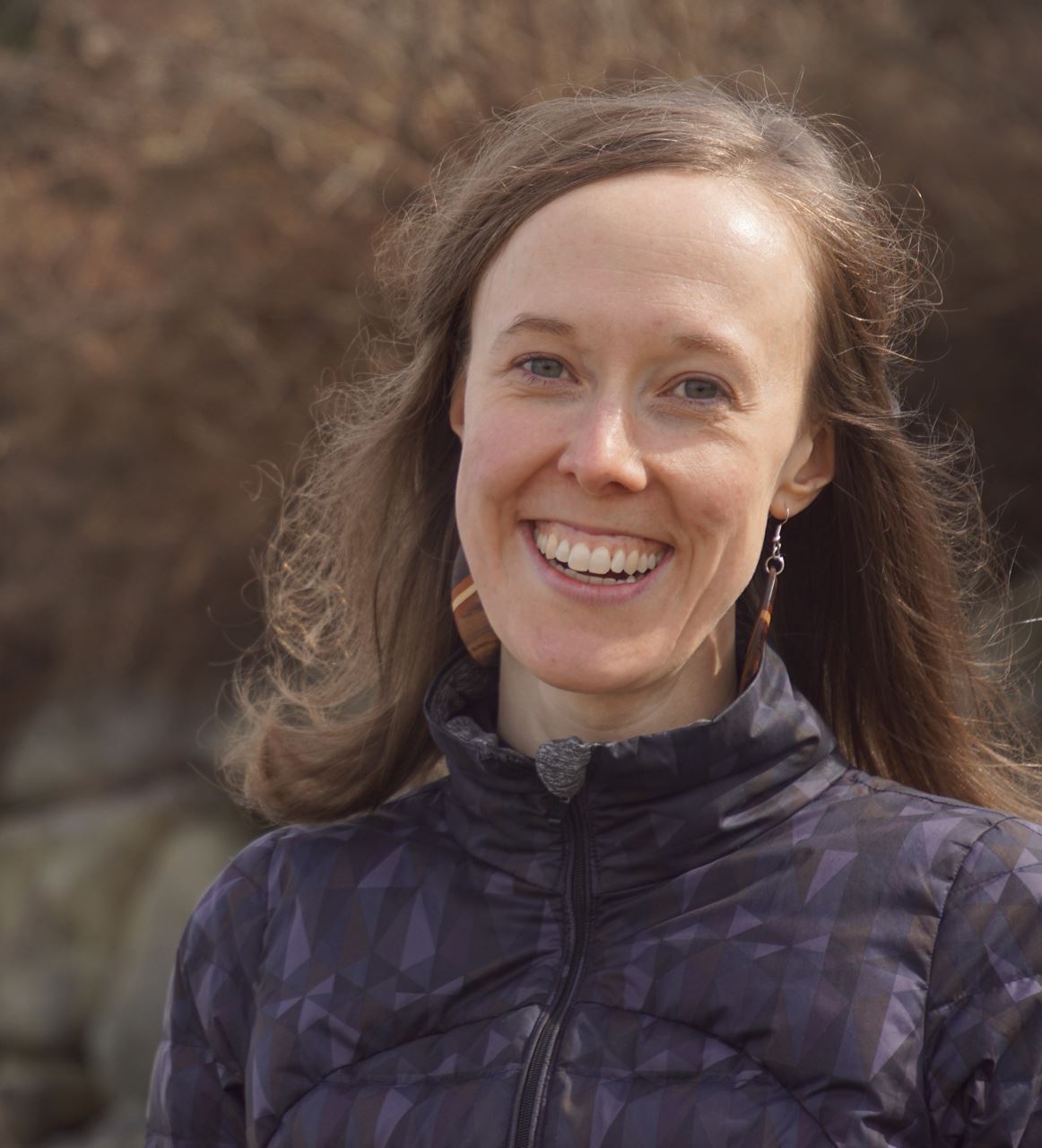


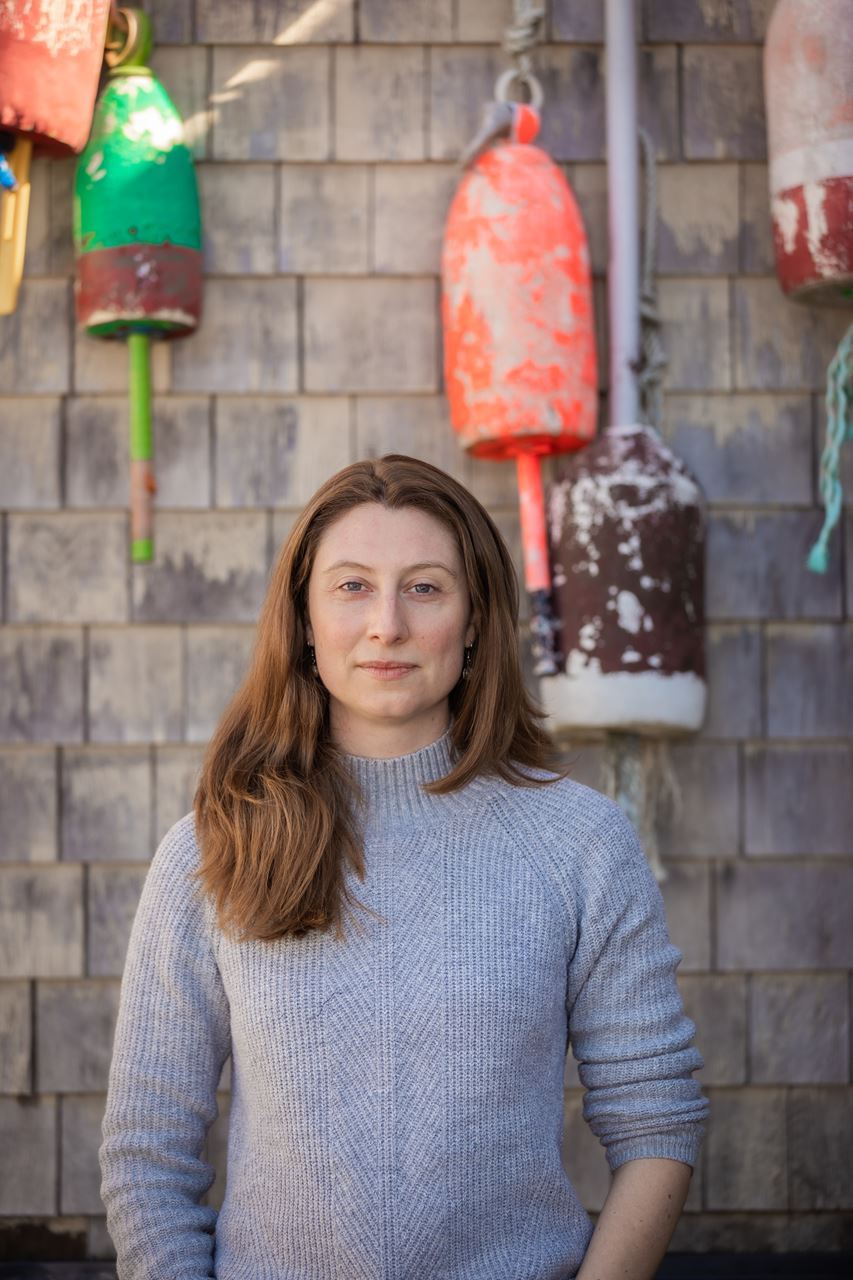

.jpg)








